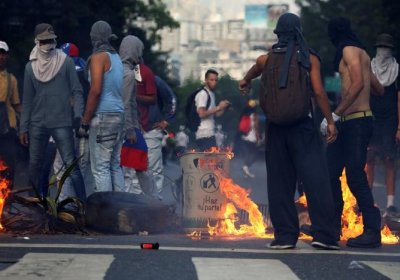Venezuelans were taken by surprise with the announcement that opposition leader Leopoldo Lopez would serve out his jail term under house arrest. The move is an unprecedented concession that seeks to calm the waters in the lead up to the July 30 Constituent Assembly elections.
But the conflict in the country is showing it has multiple faces. On July 10, a day after the official election campaign began, a candidate was assassinated in the middle of a campaign event.







 Photo: Albaciudad.org.
The Venezuelan Supreme Court unanimously ruled on April 11 that a controversial “amnesty law” passed by the country's right-wing opposition-controlled parliament is unconstitutional, Venezuela Analysis said the next day.
Photo: Albaciudad.org.
The Venezuelan Supreme Court unanimously ruled on April 11 that a controversial “amnesty law” passed by the country's right-wing opposition-controlled parliament is unconstitutional, Venezuela Analysis said the next day.


